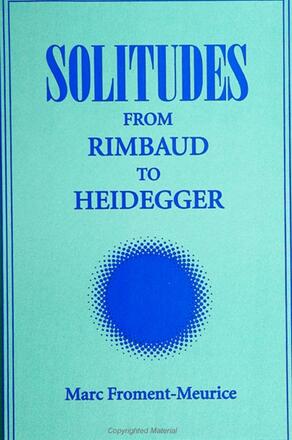
Solitudes
From Rimbaud to Heidegger
Alternative formats available from:
The author reads Rimbaud, Mallarme. Holderlin, and Trakl in relation to philosophy, and in particular to Heidegger.
Description
~ Is the age of poets past, or are we just on the verge of its coming in a farewell to poetry? When Rimbaud claims: "One must be absolutely modern!" what does he ask for? Is modernity really already finished, before it has even fully arrived?
~ Is this the paradox of our present time? What if, as Mallarme said, a present does not exist?
~ Is there any place for what Heidegger called "building, dwelling, thinking?" Why did Heidegger himself in the end need an ultimate God, after the failure of his political expectations?
~ To keep questioning is already a way of responding. Perhaps the traditional philosophical gesture is not sufficient. If language, culture, and the history of the West have come to the point of no return as shown by Auschwitz, everything has to be rethought-- without a "turn" or a return.
Marc Froment-Meurice has been a visiting professor at the University of California, Irvine, and at the University of Washington, Seattle. He is the author of Les Intermittences de la raison; La chose meme; and Tombeau de Trakl, among other works.
Reviews
"Not only has Froment-Meurice tackled the most demanding of poetic questions--what is modernity?--but he has not shied away from the truth that this is also and perhaps above all a political question, understanding this term in the broad sense. His work will be of importance to more than one constituency; scholars in both the humanities and the social sciences will benefit from his insights. The work is impressive for its erudition, and the author brilliantly illuminates the history of the myriad philosophical questions he raises. His familiarity with the history of Western philosophy is matched by an intimate knowledge of the writings of the poets. " -- Peter Connor, Barnard College